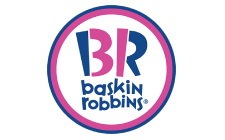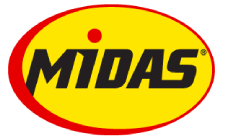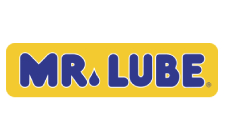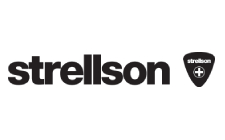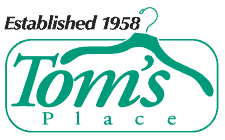Limiting access to your premises, data, and sensitive information is crucial to security and privacy. An access control system is essential to any comprehensive security protocol, ensuring that only authorized individuals can access certain areas or sensitive information.
As technology continues to advance, these types of systems have also expanded. At Protection Plus, we want to provide you with a complete understanding of access control systems and their district features and benefits so that you can feel confident in determining what you need for your business.
What is an Access Control System?
An access control system (ACS) is a security technique that regulates who or what can access your resources (digital or physical). It’s a fundamental concept in security that reduces risk to your business.
ACS performs identification, authentication, and authorization of its users by evaluating their required login credentials. It can include passwords, personal identification numbers (PINs), biometrics scans, and security tokens.
You cannot overstate the value of an ACS in today’s business environment. It helps protect sensitive information, reduces the risk of unauthorized access, protects employee safety, and helps your business comply with regulatory requirements requiring restricted access.
Types of Access Control Systems
Choosing the right access control system for your business is crucial, as they come in various forms. The most common types include:
Discretionary Access Control (DAC)
This type of system offers the owner complete control over who is allowed access. Each person has permissions sets that reflect their need to access certain areas or data.
While it’s user-friendly, it’s less secure than other types because it relies heavily on the discretion of the information administrator.
Mandatory Access Control (MAC)
MAC is more strict, using a centralized authority to determine who gets access to locations or information.
Organizations use it to handle sensitive data. Within these systems, users receive classification by security clearance and data is organized according to sensitivity.
Role-Based Access Control (RBAC)
Role-Based Access Control, also known as non-discretionary access control, is a popular approach to regulating resource access based on the roles of users within an organization.
In an RBAC system, access permissions are assigned to positions rather than to individual users. As a result, when employees are assigned new roles within the organization, their access is automatically adjusted to match the requirements of their new positions.
Attribute-Based Access Control (ABAC)
These systems use attributes to build policies that determine how much access each employee should have.
These may be user attributes (such as age, role, etc.), environmental attributes (such as time of access, IP location, etc.), and resource attributes (such as owner, classification level, etc).
Rule-Based Access Control
This ACS type limits access based on specific rules. It’s similar to MAC in that it’s centrally governed, often used for networking requiring high levels of security, and employs strict controls over user access via a system administrator.
Selecting the Right Access Control System
Choosing an ACS that caters to your business’s unique requirements is vital. Consider the following as you navigate which unit will serve your organization the best:
- Assess Your Business Needs: This involves understanding the nature of your business, determining what resources need to be protected, the level of security required, and how much flexibility and scalability you desire.
- Size and Complexity: A small business might not require an intricate system with high levels of security. In contrast, a large enterprise may need a more sophisticated system to handle complex user roles and permissions.
Understanding the depth of your security needs is essential when choosing the right system.
- Regulatory Compliance: Certain regulations can dictate that you need specific types of access control, depending on your industry.
For example, healthcare organizations must comply with HIPAA regulations, which require a system that provides detailed user access reports.
- Integration With Existing Systems: It’s important not to overlook how an ACS will integrate with your existing security systems. Compatibility enhances security and efficiency, while incompatibility can hinder it.
- Budget Constraints: The costs of access control systems can vary. Therefore, it’s essential to consider how much you can reasonably afford to spend. Balance your need for security with the money you’re willing to invest.
Don’t forget to factor in potential expenses like maintenance and equipment upgrades.
Technology Trends in ACS Systems
Part of being a business owner is knowing which technological components (1) add value to your establishment and (2) provide a high level of security for your physical and digital assets. It includes taking note of:
- Mobile Access Controls: You can manage most systems via smartphones and other mobile devices. It offers convenience, providing access when and where you need it, but requires additional layers of security to ensure your information remains secure.
- Biometrics Systems: These systems offer extra protection by requiring a fingerprint, facial recognition, or other bio inputs to access your assets. While more secure, it’s important to note that these systems are typically more expensive than traditional ones.
- Cloud-Based Systems: It offers real-time monitoring and management of entrances and exits from anywhere. They’re popular as they tend to reduce the need for on-site hardware.
- Internet of Things (IoT) Compatibility: IoT devices, which are physical objects that exchange data with other systems, are everywhere.
Therefore, it’s understandable that many business owners want their ACS to be compatible with IoT devices to ensure a seamless operation from beginning to end — especially in smart business environments.
Effective Use and Maintenance
After selecting the type of access control system, knowing how to implement it is essential to success. It involves professionally installing a system, training your staff on how to use it, and performing regular maintenance.
It ensures that your system will operate smoothly and remain secure as you continue your day-to-day operations.
Choose the Best Security Option with Protection Plus
The right access control system for your business will depend on many factors, including your security requirements, budget, business size, and any governing regulations you must follow.
At Protection Plus, we carefully assess your needs to ensure you feel confident when choosing an access control system. We offer security that grows and evolves with your business, preventing unauthorized access and breaches.
For more information about ACS or to schedule a complimentary consultation, connect with us at your earliest convenience or give us a call at 1–855-365‑7587.
- Access Control
- Alarm monitoring
- Alarm Systems
- cannabis
- cannabis retailer
- CCTV Cameras
- Childproof Doors
- Commercial Security
- Construction Security
- Cybersecurity
- Digital Safety
- Door Bell
- Ethernet
- fire
- flood
- garage
- General Category
- Halloween
- holiday
- home
- home automation
- Home Safety
- Home Security
- Home Security System
- In the News
- intercom
- internet
- life insurance
- Locksmith
- Move Ahead
- moving
- MUL-T-LOCK
- natural disasters
- New Years
- Office Security
- Personal Safety
- Pet Protection
- real estate
- Safes
- Safes
- safety
- school
- Security Cameras
- Security Film
- Security Industry News
- Security Systems
- Security Tips
- security window film
- Senior Safety
- shoplifting
- Small Business
- Small Business security
- social media
- social network
- Sports Safety
- summer
- vacation
- Video Alarm Monitoring
- web
- web surfing
- Webdesign
- Window Film
- winter
- Workplace safety














